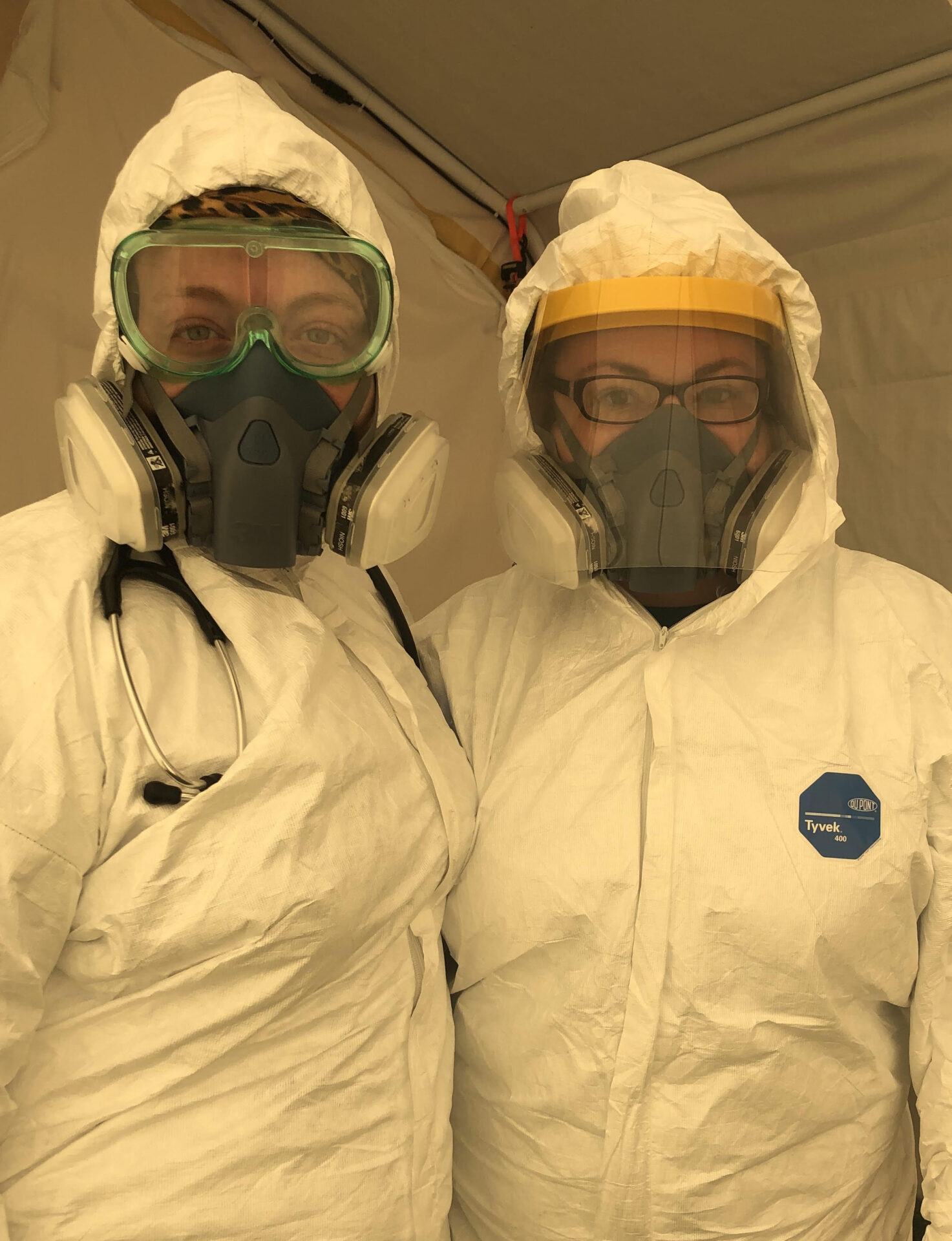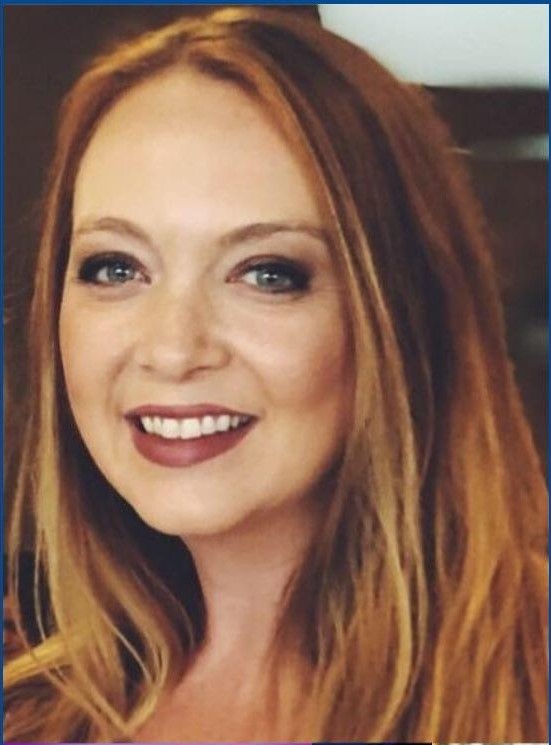Healthcare Heroes – Alisha Ashley, APRN-FNP
Across the country there seems to be two primary battlegrounds in the fight against the COVID-19 virus. The first battleground is within walls of the hospitals where nurses provide cutting-edge care for the patients diagnosed with COVID-19. The second battleground is less glamorous but vitally important and is found within the walls of the testing tents and drive-thru screening centers. It is on this second battlefield that you will find our next Healthcare Hero, Alisha Ashley.

PLANNING FOR COVID-19
I had the opportunity to speak to Alisha to discuss the care that she and her team have been providing at Health Star Physicians of Hot Springs. Alisha explained that at the first sign of COVID-19 in the United States, the team at Health Star immediately began putting a plan in place for screening and caring for patients with COVID-19. Alisha recalled that many other healthcare organizations thought the staff members at Health Star were a little crazy for the radical plans; at least until the first COVID-19 case was announced in Arkansas. Now, the policies and procedures set in place by Health Star months ago, are serving as an example of best practices for other screening and testing facilities.
PROCESS
Alisha described the process in place at Health Star. After entering the parking lot at Health Star, patients proceed to the appropriate triage area by answering questions related to symptoms of respiratory illness. Patients without respiratory symptoms continue to a triage tent for vital signs, including temperature assessment. If the patient is COVID symptom-free and without fever, they go to the waiting room inside the office. If a patient is experiencing respiratory symptoms or fever, they go to the COVID screening tent for more specific assessments. Classic symptoms of COVID-19 are fever, cough, and shortness of breath. Any patient that presents with one or more symptoms go to a special “quarantined” section of the parking lot and remain in their cars.
Once parked in the quarantined parking lot, the patients remain in their car as Alisha and other healthcare providers perform assessments and conduct the necessary treatments and testing. Alisha explained, “Having patients (as well as family and friends) remain in their car, has been effective in decreasing the amount of exposure to the staff as well as other patients.”
EDUCATION
Other procedures deployed to decrease the spread of COVID-19 include extensive teaching and educational handouts provided for every patient who displays COVID symptoms, regardless of the test results. The teaching focus is for the patient as well as those present with the patient. Alisha explained that early in process of triaging and testing patients, they found that many patients did not fully understand the steps necessary to maintain effective isolation.
Alisha continued by discussing the measures that her team is taking to stay abreast of the latest science regarding the diagnosis and treatment of COVID-19. Each day, the staff at Health Star spends time discussing the latest information regarding the evolving science of caring for patients with COVID-19. Many of these publications, Alisha explained, originate from the State of Washington, where COVID-19 first entered the country. These publications or “white papers”, along with the latest news from the Centers for Disease Control (CDC) guide their practice and continue to change as their knowledge of COVID-19 evolves.
COMMITMENT TO PATIENTS
Alisha also explained that while the urgency of COVID-19 has changed the flow of care, their commitment to their patients with chronic illnesses and established care at Health Star remains steadfast. I asked Alisha how they were continuing to manage the care of their patients with chronic illnesses. Alisha described a categorization process that their practice utilizes to track and manage the care of their patients. The categories rank 1-5, for example, category 1: patients with fewer comorbidities or better managed chronic illnesses and, category 4 & 5: patients with multiple comorbidities or poorly managed chronic illnesses. “Well patient” visits are rescheduled when possible and patients that fall into category 4 or 5 are being prioritized and followed very closely to ensure that they are continuing to stay well and without complications. When at all possible, follow-up visits are conducted via telehealth. However, due to the creative methods used to triage potentially contagious patients, the clinic remains open and able to provide follow-up care to its chronic disease patients.
TELEHEALTH
Alisha spent time talking about the importance that telehealth is playing in her patient care. In March, President Trump and the Centers for Medicare & Medicaid Services (CMS) removed many of the barriers that prevented Nurse Practitioners and other healthcare providers from delivering health services using a variety of patient-friendly technology platforms. This regulatory change allows Alisha, and many other nurses, to connect with their patients using FaceTime and other easily accessible methods. Alisha is now able to FaceTime with her diabetic patients and perform the necessary assessments needed for them to receive their routine medication refills. Alisha stressed the importance of being able to continue to provide care to her patients without putting them at risk of contracting COVID-19.
TEAMWORK
I asked Alisha about the healthcare team that she works with on a daily basis. I asked if this current crisis had changed any of the dynamics of the team. She spoke candidly about the real possibility of some, if not all, of her team contracting COVID-19. She explained that every member of the team was being cross-trained to other roles in the event that a team member becomes ill. She shared that her team already functions in a manner that moved fluidly between the traditional roles and job descriptions of clinic staff. Thankfully, Alisha reported that, to date, none of the staff have tested positive for COVID-19.
COMMUNITY EFFORTS
Alisha continued by sharing about the support and assistance that the team has received from outside the clinic staff. She shared that when the chaos began regarding the availability of personal protective equipment (PPE), a physician’s wife drove to all corners of the state in search of N95 respirators for the staff at Health Star. Alisha shared that they have remained sufficiently stocked with the appropriate PPE. She also shared that citizens of Hot Springs had dropped off hazmat suits, Clorox wipes, and Lysol, and continue to respond to any need shared on the social media sites. She also shared that CHI St. Vincent Hot Springs, a local hospital, collaborated with National Park Community College, a local nursing program, and opened a COVID-19 Call Center. Callers who meet criteria for screening or testing are directed to the testing tent located at Health Star for further evaluation.
MESSAGE FOR THE PUBLIC
I ended the conversation by asking Alisha if there was one thing that she wished she could better convey to the public. Her answer surprised me. Alisha responded, “The need to follow the quarantine guidelines is real. It is very important to limit the number of people who are out and in public. In addition, the need to encourage and support those in our community who have contracted COVID-19 is equally as important. They have not done anything wrong and should not be treated as lepers. Rather, they need our encouragement. They need to know that we care. They may even have needs that can easily be met by their community.”
Fred Rogers once said, “When I was a boy and I would see scary things in the news, my mother would say to me, “Look for the helpers. You will always find people who are helping.” Alisha Ashley is a helper. Her team at Health Star have gone beyond convention to serve their patient population, and she wants to encourage us to do the same. Thank you, Alisha, and the staff at Health Star, for helping the citizens of Hot Springs obtain the care they need in creative and innovative ways that help to decrease the spread of COVID-19.

Alisha Ashley, APRN, FNP, is a graduate of National Park Community College and the University of Arkansas for Medical Sciences.
